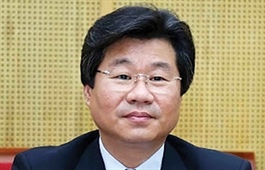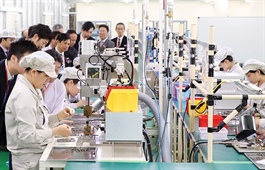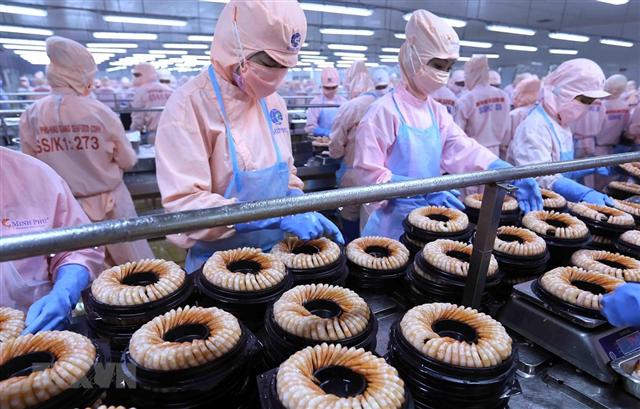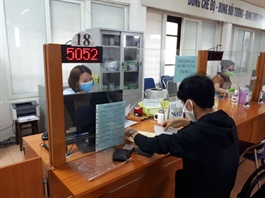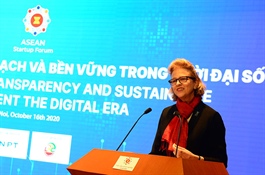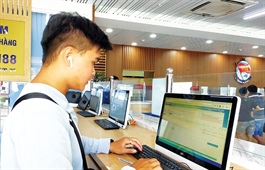Thai Nguyen leads way for the north
Thai Nguyen leads way for the north
The northern province of Thai Nguyen will focus on new orientations to fulfil its ambitious targets for the next five years, with improvements to the business climate to increase attraction.
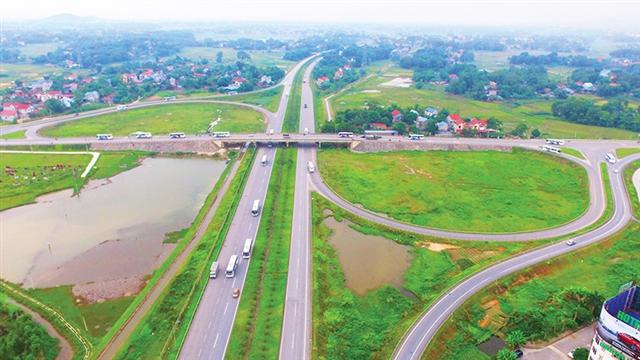
Site clearance and transport infrastructure development are top targets. Photo: Le Toan
|
The province’s 20th Party Congress for the 2020-2025 term has set a number of major targets. Nguyen Thanh Hai, Secretary of Thai Nguyen Party Committee said, “The province aims to increase its regional GDP per capita to VND150 million ($6,520) by 2025, and develop Thai Nguyen into a modern industrial and economic hub in the northern mountainous and the midland regions by 2030.”
The province aims for regional GDP growth of 8 per cent, while the economic structure by 2025 is set to consist of industry and construction (61 per cent), services (31 per cent), and agro-forestry-fishery (8 per cent).
The province’s industrial production value is forecast to annually grow at least 9 per cent on average. Meanwhile, the value of agro-forestry-fishery production will increase 3.5 per cent annually while local export value will rise at least 7 per cent.
The province targets to increase its trained workforce to 75 per cent while reducing the number of poor households by at least 1 per cent per annum on average, and ensuring forest coverage of 46 per cent. Furthermore, Thai Nguyen wants at least 98 per cent of its population to have access to clean water.
In addition, the province also aims to improve the business climate to increase its appeal to domestic and foreign investors. To achieve this, focus will lie on development of infrastructure in the south, site clearances to create land funds and attract investors, and transport infrastructure and industrial parks.
Moreover, the private and high-tech sectors are encouraged to develop production clusters and connect facilities and production chains to improve overall competitiveness.
As a special point of attention, Thai Nguyen aims to develop local human resources and promote advantages and growth potential of the province, especially its universities and science and medical research centres to tap into Industry 4.0
Finally, rural development is given high priority to, similar to sustainable poverty reduction and socioeconomic development in ethnic minority areas, whose potential lies in the development of tourism and high-tech agriculture.
Addressing the congress, Deputy Prime Minister Pham Binh Minh stated that Thai Nguyen should consider its advantages and shortcomings to soon deal with them. “The province should focus on the development of socioeconomic infrastructure, pay due attention to regional links, restructure agriculture to increase added value and sustainable development, and develop infrastructure for high-tech agriculture, positioning it as a spearhead of the economy.”
Over the past five years, Thai Nguyen has made great achievements in socioeconomic development. Industry and construction make up 59 per cent of the province’s economy while services account for 31 per cent and agro-forestry-fishery for 10 per cent. During the period, the province’s industrial production value grew 16.3 per cent per year on average, agro-forestry-fishery production value increased 4.5 per cent annually, and local export value rose 13.1 per cent, while regional GDP per capita in 2020 so far reached VND90 million ($3,900).
The province’s socioeconomic infrastructure has been strongly developed, while labour productivity has continued to increase. According to figures from the Foreign Investment Agency under the Ministry of Planning and Investment, as of August 20, total effective foreign-invested projects in the province amounted to 172 registered at more than $8.38 billion, placing the province among the top 10 localities nationwide in terms of international investment attraction.







